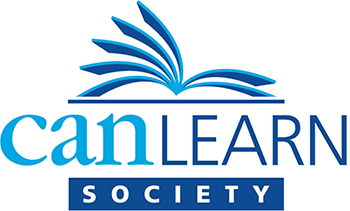Protecting health and safety for all learners, clients, staff and volunteers is a top priority for CanLearn.
The CanLearn office is closed as our staff work from home. All of-site our community and in-home programs have been put on hold.
However, our family and adult literacy programs are not cancelled. In order to support our program participants continue to learn during the times of uncertainty, we have made modifications to our program delivery models. The programs will continue to run on-line.
With everything being cancelled to deal with the COVID-19 situation, what are we doing choosing to continue literacy programs? How and why, in the middle of an unprecedented situation, are we expecting our learners to respond? Isn’t it wise to just wait till this ends?
Reflecting on these questions, we came up with a number of reasons why it is absolutely crucial to continue learning during the times when we all have to stay home.
First and foremost, we want to help our learners maintain a tiny but important sense of normalcy during the times of turbulence and help them stay resilient and hopeful. During the times of anxiety, fear and uncertainty, it is important to connect. Due to social isolation, the COVID – 19 emergencies can have a significant negative impact of both adult and children’s emotional and psychological well-being. Parents are likely to experience stress and anxiety and may not be able to support their children’s learning as they would in normal circumstances. Adult literacy learners may experience challenges to focus on the things that are positive in their life. Continuing to learn will offer our learners a sanctuary and an opportunity to down everything else even if for a few hours each week.
Our on-line world and news are full of frightening COVID-19 stories. This is an opportunity to help our program participants learn to consider the sources of their information and to beware of the large amount of misinformation.
The outbreak of COVID-19 raises questions and concerns for all of us. We are all learning as we go and that’s OK. Opportunities for learning are endless. We can help parents learn how to talk to their young children about COVID-19 at a developmentally appropriate level. We can help parents try to make the “new normal” fun for their children. A good example is learning to wash hands long enough for two renditions remind of “Happy Birthday” song. Now is the time to strengthen digital skills and learn FaceTime, Zoom, Skype, Google Hangouts and WhatsApp to stay connected and keep learning.
We are still there for our learners, determined to stay connected, optimistic and hopeful. One of the most important roles that we have is to help them imagine the time when our programs are able to run in-person again and when our world will be back to normal.
